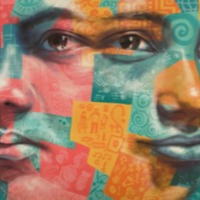
Melody
There are an estimated 136,000 people living on conditions of modern slavery in the United Kingdom (Global Slavery Index 2018). According to the 2017 annual figures provided by the National Crime Agency, 5, 145 potential victims of modern slavery were referred through the National Referral Mechanism in 2017, of whom 2,454 were female, 2688 were male and 3 were transgender, with 41% of all referrals being children at the time of exploitation. People are subjected to slavery in the UK in the form of domestic servitude, labour exploitation, organ harvesting and sexual exploitation, with the largest number of potential victims originating from Albania, China, Vietnam and Nigeria. This data however does not consider the unknown numbers of victims that are not reported. Melody was brought from Nigeria to the UK by a family friend at 12 years old. Upon arrival she was taken to a woman’s house where she was forced to clean every day for long hours under constant verbal abuse. This woman started bringing men to the house to sexually abuse Melody. Melody was kicked out of the house one day when she refused to sleep with one of the men the woman had brought to her. She spent months homeless on the street where she was subjected to further sexual violence. She was finally able to leave her situation with the help of an advisor from Refugee Council.
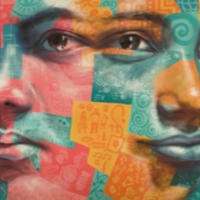
A.
There are an estimated 20,000 people living in conditions of modern slavery in Albania (GSI 2018). An estimated 10% of girls in Albania are married before their eighteenth birthday, with child marriage most common among the Roma ethnic group and in poor, isolated and rural areas. Child marriage is driven by gender inequality and while country has committed to eliminate child, early and forced marriage by 2030 in line with target 5.3 of the UN Sustainable development goals, no progress has been reported thus far. Human traffickers also exploit domestic and foreign victims in Albania, and traffickers exploit victims from Albania abroad. Traffickers exploit Albanian women and children in sex trafficking and forced labor within the country, especially during tourist season. Traffickers use false promises such as marriage or employment offers to force victims into sex trafficking. Traffickers exploit Albanian victims in sex trafficking in countries across Europe, particularly Kosovo, Greece, Italy, Belgium, Germany, Switzerland, North Macedonia, Norway, the Netherlands, and the UK. Albanian migrants who seek employment in Western Europe face forced labor and forced criminality, particularly in the UK. When she was a young girl A’s mother left her father for another man. Too poor to look after her, A’s mother sent her to live with a neighbours’ family who, while treating her well at first, began to withhold food and exploit her. She stayed there for one year before returning to live with her mother who, after spending some time begging, had been forced in to prostitution by a man who had promised to help her get a better house. A’s mother’s boyfriend began sexually abusing her, and when a friend found out, he hit the boyfriend with his car. A began working as a prostitute at the age of 13, thinking she was helping her mother who was too ill to work. One day A met a man who took her to a convent in Italy who referred her to a shelter where she was helped build a better life.
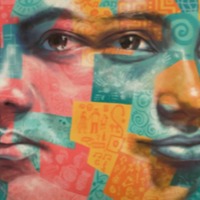
Ibrahim
The 2018 Global Slavery Index Report estimated that approximately 43,000 people were living in modern slavery in Senegal. Based on existing data, Human Rights Watch estimates that more than 100,000 talibés living in residential daaras across Senegal are forced by their Quranic teachers, also known as marabouts, to beg daily for money, food, rice or sugar. Thousands of these children live in conditions of extreme squalor, are denied sufficient food and medical care, and many are also subject to sexual and physical abuse amounting to inhuman and degrading treatment. A ‘Talibé’ is a “disciple” or student of the Quran. Talibés can be adults or children of any age, but the vast majority in Senegal are boys between the ages of 5 and 15, particularly those living at residential daaras. Some talibé children live with family and attend Quranic schools during the day. Most female talibés are day students that do not live at the Quranic schools.Human Rights Watch estimates the number of talibé children forced to beg in Senegal to be over 100,000.13-year-old Ibrahim* is a runaway who spent several years at a Quranic school in Touba.
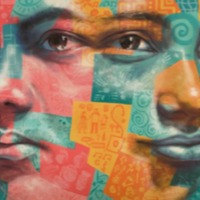
Andrei A
It is estimated that there are 105,000 people living in conditions of modern slavery in Spain (GSI 2018). Spain is a source, transit and destination country for men, women and children subjected to forced labour and sex trafficking. Women from from Easter Europe, particularly Romania, South America and Nigeria are subjected to sex trafficking, while men and women from South and East Asia are subjected to forced labour in the textile, agricultural, construction, industrial and service sectors. Unaccompanied migrant children continue to be trafficked for sexual exploitation and forced begging. Andrei took up an offer for a job in Spain, however upon arrival he was forced to beg on the streets under constant surveillance and threats.
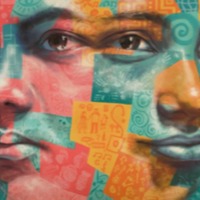
Alexandru
The Global Slavery Index 2018 estimates that there are approximately 129,000 people living in conditions of modern slavery in France. France is a destination, transit and, to a lesser extent, source country for the exploitation of men, women and children in forced labour and sex trafficking. People from Romania and West and North Africa are forced to commit crimes including petty theft and are often subjected to forced begging. They are often lured to the country by false job offers as they seek a better life for their families. Alexandru was looking for work when he heard of a job opportunity in France. However, upon arrived he was given to a gypsy family and forced to beg under the threat of violence. Alexandru was finally able to escape and gave a statement to the police about his experience.
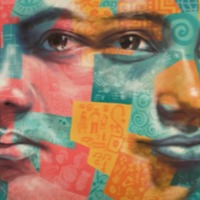
Kundamanchi Ramulamma
It is estimated that almost 8 million people are living in conditions of modern slavery in India (GSI 2018). The skewed sex ratio in some regions of India has fuelled the trafficking and selling of women and young girls as brides within India. Women are reportedly sold off into marriage by their families, sometimes at a young age, and end up enduring severe abuse, rape and exploitation by their husbands. It is also reported that women and girls from impoverished backgrounds have been lured by promises of marriage by younger men from urban areas, then forced into sex work once married. Kundamanchi Ramulamma was 15 years old when she was married to a person from her caste. After the marriage, Kundamanchi Ramulamma was sexually abused by her father-in-law. He father went to the panchayat who eventually agreed to a divorce, however, a few month later, Kundamanchi Ramulamma was forced to marry again.
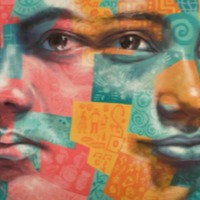
Muttam Jyotsna
It is estimated that almost 8 million people are living in conditions of modern slavery in India (GSI 2018). The skewed sex ratio in some regions of India has fuelled the trafficking and selling of women and young girls as brides within India. Women are reportedly sold off into marriage by their families, sometimes at a young age, and end up enduring severe abuse, rape and exploitation by their husbands. It is also reported that women and girls from impoverished backgrounds have been lured by promises of marriage by younger men from urban areas, then forced into sex work once married. Muttam Jyostna was 15 years old when she met a boy from the same caste as her and from a known family. Their parents decided to get them married. However, after the marriage Muttam was unable to do anything without the permission of her mother-in-law. Her food was restricted and she was subjected to physical abuse from her husband.
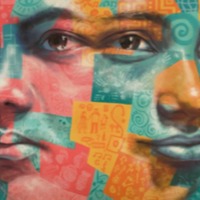
Anastasia
Despite having the lowest regional prevalence of modern slavery in the world, Europe remains a destination, and to a lesser extent, a source region for the exploitation of men, women and children in forced labour and commercial sexual exploitation. According to the most recent Eurostat findings, European Union (EU) citizens account for 65 percent of identified trafficked victims within Europe. These individuals mostly originate from Eastern Europe, including Romania, Bulgaria, Lithuania and Slovakia. In Albania and Bosnia and Herzegovina, the European Parliament has identified corruption and the judicial system as reform challenges towards accession talks within the EU. In Greece, the turbulent economic situation has increased vulnerability for populations seeking employment and livelihood opportunities. In Greece, unemployment reached 24.4 percent in January 2016 with a youth unemployment rate of 51.9 percent. The story told by “Anastasia” has elements of both sexual exploitation and domestic servitude perpetrated by her parents on her as a child.
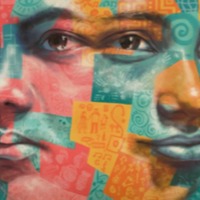
Alana
Alana was born in Moldova and trafficked into sex slavery in Russia, where men and women are also trafficked in from Central Asia and North Korea for forced labor and sexual exploitation. Moldova is a country origin for the trafficking of women and children into European sex slavery. Its economic conditions fuel this trafficking. In 2000, the country’s GDP was 40 percent of its level in 1990. Unemployment remains high, especially among women. People are forced to look outside of the country for work and pimps take advantage: some victims are kidnapped but more often they answer job advertisements promising work and then are forced into sex slavery. Most Moldovan trafficking victims are taken to the Balkan countries, though other destinations include Asia, Turkey, Western Europe and the Middle East.